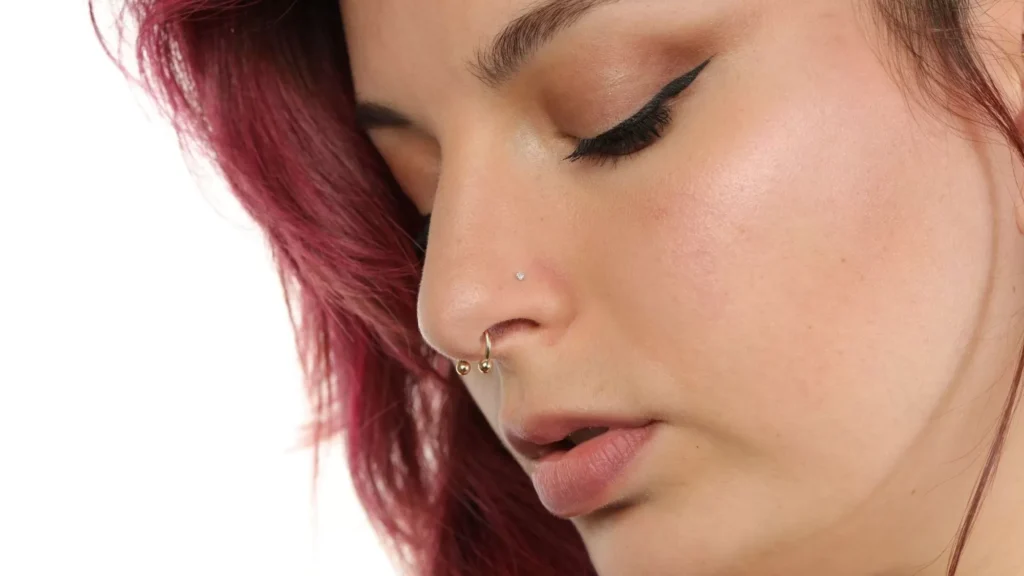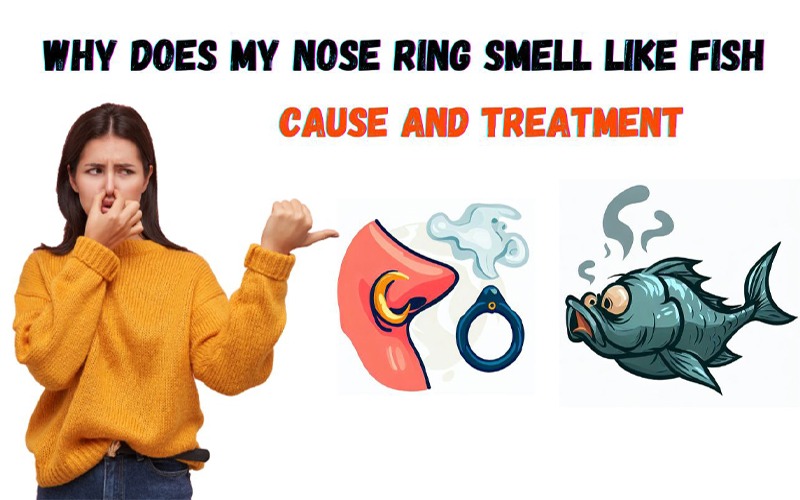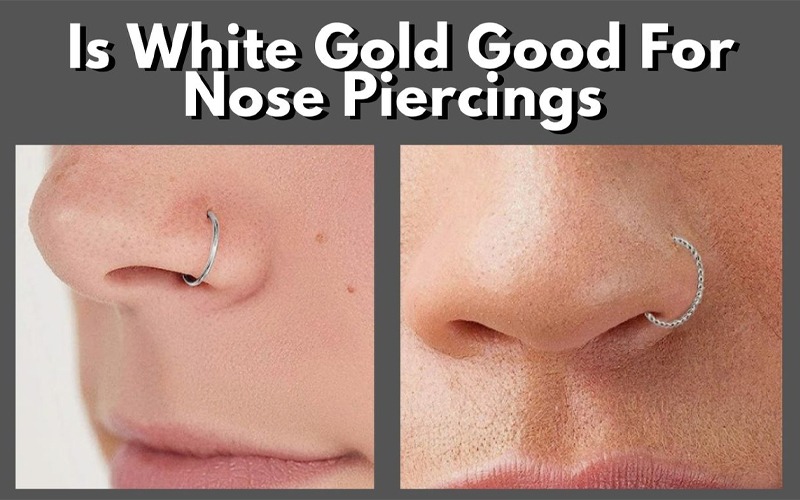If your septum piercing smells, bacteria accumulation from poor cleaning habits might be the cause. Cleanse daily using saline solution or gentle soap to prevent odor. Avoid touching with dirty hands and opt for breathable jewelry to reduce bacterial growth. Choose high-quality materials like surgical steel to minimize reactions. Stay hydrated and adjust cleaning to maintain moisture balance. If redness or swelling occurs, seek professional advice for infection prevention. Fixing these habits can help keep your piercing fresh.
Poor Cleaning Habits
If you neglect regular cleaning of your septum piercing, bacteria can accumulate, leading to unpleasant odors. It’s essential to keep up with cleaning to prevent this issue. Remember, your septum piercing is a part of you, so taking care of it should be a priority. Make it a habit to clean your piercing daily, using a saline solution or gentle soap. This simple routine can make a big difference in keeping your piercing fresh and odor-free.
Sometimes, in the hustle of daily life, it’s easy to forget this step. But don’t worry; just a few moments each day can keep your septum piercing smelling clean and looking great. Don’t let a lack of routine hold you back from enjoying your piercing to the fullest. By incorporating cleaning into your daily regimen, you can maintain a fresh piercing and avoid any unwanted smells. So, take charge, establish a cleaning routine, and say goodbye to smelly septum piercings for good.
Bacterial Build-up
To prevent smelly septum piercings, maintaining proper hygiene practices is essential in reducing bacterial build-up. When it comes to keeping your septum piercing fresh and odor-free, here are some tips to help you maintain a clean piercing and prevent bacterial build-up:
- Cleanse with saline solution: Regularly rinsing your piercing with a saline solution helps to flush out bacteria and keep your piercing clean.
- Avoid touching with dirty hands: Keep your hands clean and refrain from touching your piercing with unwashed hands to prevent introducing bacteria.
- Choose breathable materials: Opt for breathable materials for your septum jewelry to allow air circulation and reduce the risk of bacterial growth.
- Keep hair away: Tying up your hair or using a hairband can prevent hair from coming into contact with your piercing and introducing bacteria.
- Avoid harsh products: Refrain from using harsh chemicals or products near your piercing as they can disrupt the natural balance and promote bacterial growth.
Jewelry Material Reactions
Selecting the appropriate jewelry material for your septum piercing is essential in preventing potential reactions and maintaining a healthy piercing. Opt for materials like surgical stainless steel, titanium, or niobium, as they’re less likely to cause adverse reactions compared to nickel or other low-quality metals. Make sure the jewelry is hypoallergenic to minimize the risk of irritation.
If you notice any redness, swelling, or unusual discharge around your piercing, it may be a sign of a reaction to the jewelry material. In such cases, switch to a different material recommended by your piercer to alleviate the symptoms and promote healing. Remember, your septum piercing deserves the best, so choose materials that prioritize your comfort and well-being.
Excessive Dryness or Moisture
Maintain a balance of moisture for your septum piercing to prevent excessive dryness or moisture-related issues. When it comes to your piercing, finding the correct level of moisture is crucial to keeping it healthy and odor-free. Here are some tips to help you achieve the perfect balance:
- Hydrate from within: Drink plenty of water to keep your body hydrated, which can also benefit your piercing.
- Avoid excessive cleaning: While it’s important to keep your piercing clean, over-cleaning can strip away natural oils, leading to dryness.
- Select the appropriate cleaning solution: Choose a saline solution or a gentle cleanser recommended by your piercer to maintain the proper moisture levels.
- Shield from harsh environments: Extreme temperatures or dry air can impact your piercing, so protect it when necessary.
- Pay attention to your body: Take note of how your piercing feels; if it feels excessively dry or moist, adjust your care routine accordingly.
Infection or Healing Issues
Ensuring proper hygiene practices is vital in preventing infection or healing issues with your septum piercing. Clean your piercing daily with a saline solution or gentle soap to keep bacteria at bay.
Avoid touching your piercing with dirty hands, and refrain from changing the jewelry too soon to prevent irritation. If you notice any signs of infection, such as redness, swelling, or discharge with a foul odor, seek advice from a professional piercer or healthcare provider promptly.
It’s essential to follow aftercare instructions diligently, including avoiding swimming in pools or hot tubs until your piercing is fully healed. Additionally, don’t remove or change the jewelry prematurely, as this can disrupt the healing process and lead to complications.
Remember to be patient; healing times vary for each individual, and rushing the process can result in setbacks. By prioritizing good hygiene and proper aftercare, you can promote healing and reduce the risk of infection with your septum piercing.
Conclusion
So, next time you notice a funky smell coming from your septum piercing, don’t panic! By practicing good cleaning habits, being mindful of jewelry materials, and keeping an eye out for any signs of infection, you can easily troubleshoot and eliminate the problem.
Remember, a little TLC goes a long way in keeping your septum piercing looking and smelling fresh. Stay vigilant and keep that nose ring shining!





